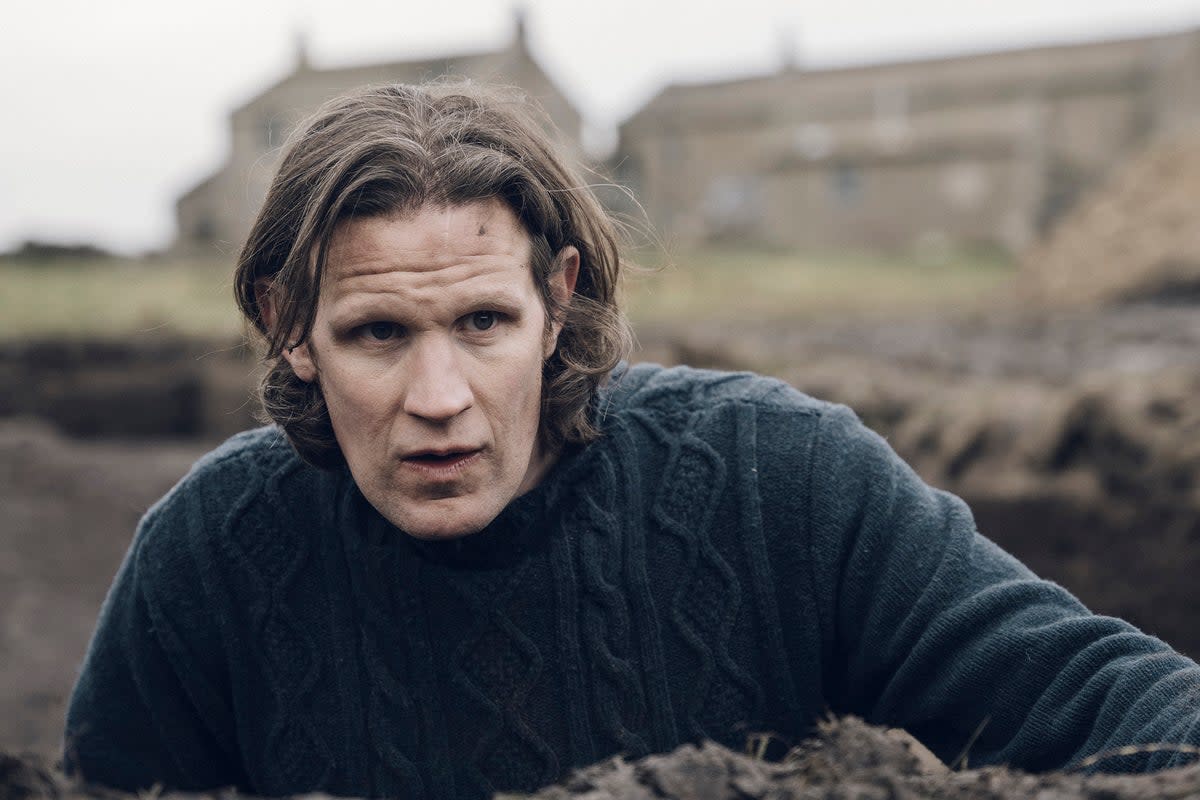Starve Acre review: Matt Smith gets his own spin on The Wicker Man in this provocative folk horror

“This place is beautiful as it is without superstitions,” Starve Acre’s Richard (Matt Smith) insists of his Yorkshire home. Cinema, as of late, would disagree. Unfortunately for Richard, he’s found himself at the centre of yet another contribution to the decade’s folk horror resurgence, preceded by Ari Aster’s Midsommar and 2021’s Iceland-set Lamb, or in the UK by 2022’s Enys Men and Ben Wheatley’s In the Earth.
It’s a crowded place, here among the many descendants of The Wicker Man and The Blood on Satan’s Claw, both products of the Seventies. Starve Acre, set in that decade, and directed by Daniel Kokotajlo, is accomplished and provocative, yet it leans heavily on the idea the North is a place of mist-bound, primitive magic and ancient mystery, without really interrogating the language or its meaning. Adapted from Andrew Michael Hurley’s 2019 novel of the same name, it sees Richard, an archaeologist, move back to his family farm with his wife Juliette (Morfydd Clark) and young son Owen (Arthur Shaw).
His father, Neil, had bought the place to research its history, drawn in by talk of an ancient oak used in pagan ritual, one revolving around a wood sprite known by the name of “Jack Grey”. Suddenly, little Owen turns violent, and he tells mummy that it’s “Jack Grey” who’s been giving him all kinds of nasty ideas. It’s the first sign of what’s to come – chaos, death, and paranoia, paired with the distant choral moans of Matthew Herbert’s score.
Soil breathes. Viscera pulsates. A rotted hare corpse, miraculously, decays in reverse, in an eerily impressive display of practical and digital effects work. Richard and Juliette, unable to cope, seek fortitude in tradition. He unearths his father’s work, and the stories told by his neighbour Gordon (Sean Gilder), while she accepts the guidance of a local spiritualist (Melanie Kilburn), who mutters enchantments into a lit candle.

As an actor, Smith retreats into himself here, his impressive stature doubled over like a gnarled, wooden cane, while his voice slows and quiets until it sounds as feeble as a child’s. Clark revisits the ethereal nature of her most notable role as of yet, Galadriel in Prime Video’s Lord of the Rings series, and adds to it a sense of delusion and detachment.
Both are impressive performances and while the air of grief and trauma may feel a little familiar, more unusual is the way Starve Acre gestures towards a parent’s anguished, fearful shame that they may not truly care for their child as they’re supposed to. “All we had to do was love him without all the judgement,” Richard cries.
Yet, director Kokotajlo’s 2017 debut, the Jehovah’s Witness drama Apostasy, found a better way to ground matters of faith, trust, and isolation. He’s a little less successful here, only because there’s an expectation that all this historical symbolism – the Celtic triple-spirals and woodblock prints – is an easy shortcut to emotional weight and terrible portent. It lacks the intimate and the specific. But, hell, Starve Acre does end with one of the oddest, most off-putting images you’ll see at the cinema this year. And that won’t come as good news for the Yorkshire tourist board.
Dir: Matt Smith, Morfydd Clark, Erin Richards, Arthur Shaw, Sean Gilder, and Melanie Kilburn. 15, 98 mins.
‘Starve Acre’ is in cinemas from 6 September


